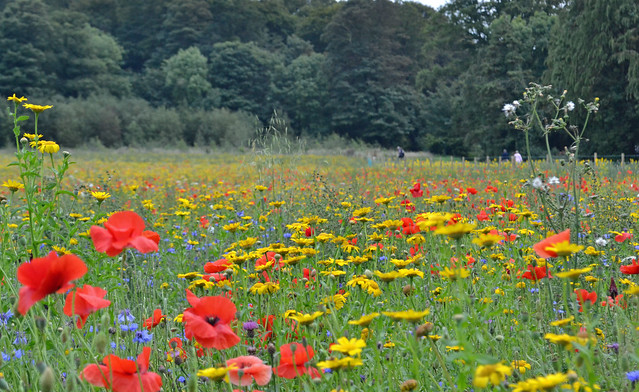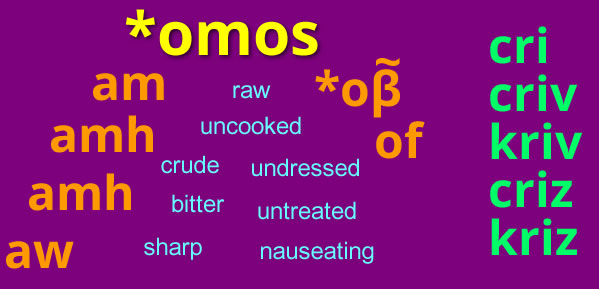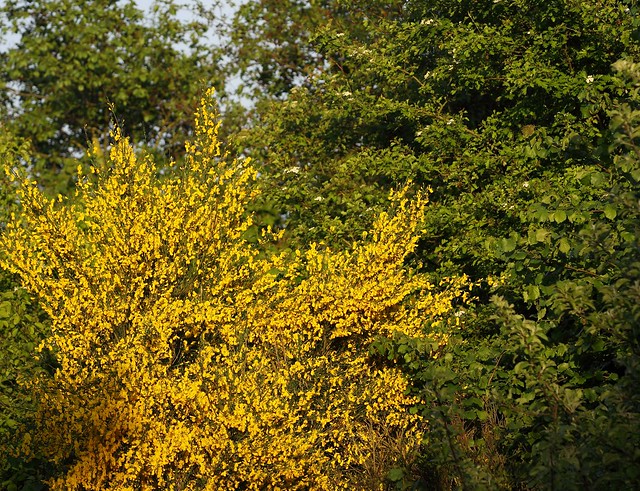Words for gloves, sleeves and related things in Celtic languages:
| Old Irish (Goídelc) | muinchille = sleeve |
|---|---|
| Irish (Gaeilge) | muinchille = sleeve, sleeving muinchilleach = sleeved |
| Scottish Gaelic (Gàidhlig) | manag = glove, mitten muinchill [munuçɪl̪ʲ] = sleeve muinchill-gaoithe = windsock muinchil léine = shirt sleeve ceann-muinchill = cuff |
| Manx (Gaelg) | muinneel = sleeve, sleeving fent mhuinneel = cuff, shirt cuff, wristband doarn-mhuinneel = cuff |
| Proto-Brythonic | *maneg = glove, gauntlet |
| Middle Welsh (Kymraec) | manec, maneg = glove, gauntlet |
| Welsh (Cymraeg) | maneg [kruːθ] = glove, gauntlet manegog = gloved |
| Middle Cornish (Cernewec) | maneg = glove |
| Cornish (Kernewek) | manek = glove manegen = mitten manek blag = gauntlet manek lowarn = foxglove |
| Breton (Brezhoneg) | maneg = glove, bribe manegoù = gloves, handcuffs maneg-emwalc’hiñ = washcloth maneg-veudek = mitten maneg-houarn = gauntlet maneg-kegin = potholder |
Etymology: from the Latin manica (long sleeve of a tunic, manacles, handcuffs), from manus (hand) [source].
Words from the same Latin root include manche (sleeve) in French, manica (sleeve) in Italian, manga (sleeve) in Spanish and Portuguese, and mëngë (sleeve) in Albanian [source].
| Old Irish (Goídelc) | lámann = sleeve |
|---|---|
| Irish (Gaeilge) | lámhainn = glove lámhainneoir = glove-maker lámhainneoireacht = glove-making lámhainn iarainn = gauntlet |
| Scottish Gaelic (Gàidhlig) | làmhainn [l̪ˠãːvɪn̪ʲ] = glove, mitten, gauntlet làmhainneach = pertaining to or abounding in gloves, gloved làmhainnear = glove-maker làmhainnearachd = art or trade of glove-making làmhainnich = to provide with gloves, put gloves on the hands |
| Manx (Gaelg) | lauean = glove lauean liauyr/yiarn = gauntlet |
Etymology: from the Old Irish lám (hand, arm), from the Proto-Celtic *ɸlāmā (palm, hand), the the Proto-Indo-European *pl̥h₂meh₂ (palm, hand) [source].
The word lámur (flipper, paw, left hand) In Icelandic and Faroese comes from the same Old Irish root, via Old Norse [source], and words for hand in Celtic languages come from the same Proto-Celtic root [more details].
| Middle Irish (Gaoidhealg) | lámos = sleeve |
|---|---|
| Middle Welsh (Kymraec) | lleuys, llawes = sleeve |
| Welsh (Cymraeg) | llawes = sleeve, edge, strip (of land) |
Etymology: from the Proto-Celtic *ɸlāmā (see above).
| Irish (Gaeilge) | miotóg = mitten, glove mitín = mitten |
|---|---|
| Scottish Gaelic (Gàidhlig) | miotag [mihdag], meatag [mɛhdag], mògag [mɔːgag], miteag [mihdʲag] = glove, mitten miotagach [mihdagəx] = wearing mittens, having mittens, full of gloves or mittens |
| Welsh (Cymraeg) | miten, mitin = mitten |
| Breton (Brezhoneg) | miton = mitten |
Etymology: from the English mitten, from the Middle English myteyne (glove, mitten), from the Old French mitaine (fingerless glove, mitten) [source]. The Breton word miton probably comes from the French miton (gauntlet).
Words marked with a * are reconstructions.
Sources: Wiktionary, Am Faclair Beag, Online Manx Dictionary, Teanglann.ie, eDIL – Electronic Dictionary of the Irish Language, In Dúil Bélrai English – Old Irish glossary, Geiriadur Prifysgol Cymru, Gerlyver Kernewek, Gerlyvyr Cernewec, Dictionaire Favereau, TermOfis, Le dictionnaire diachronique du breton, Geriafurch, English – ProtoCeltic WordList (PDF), Etymological Dictionary Of Proto Celtic












